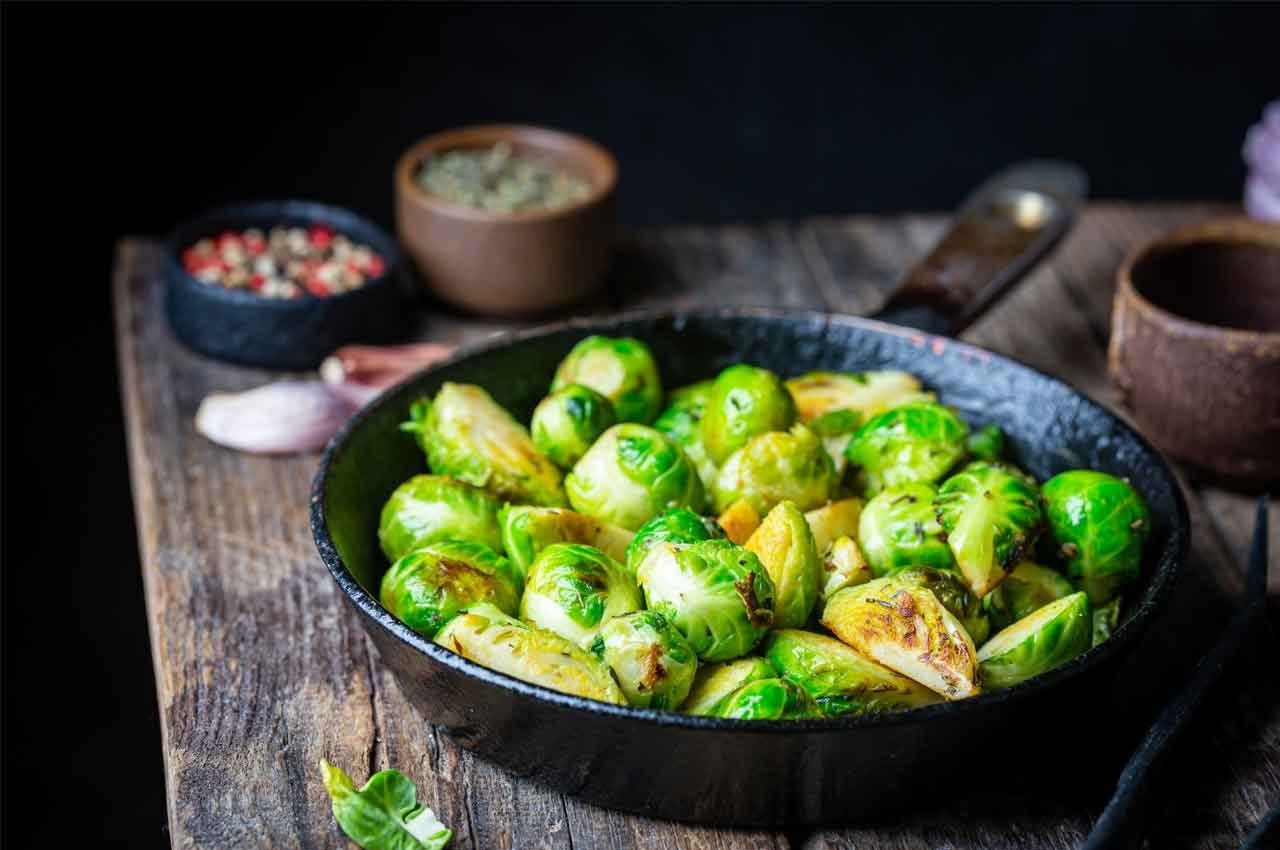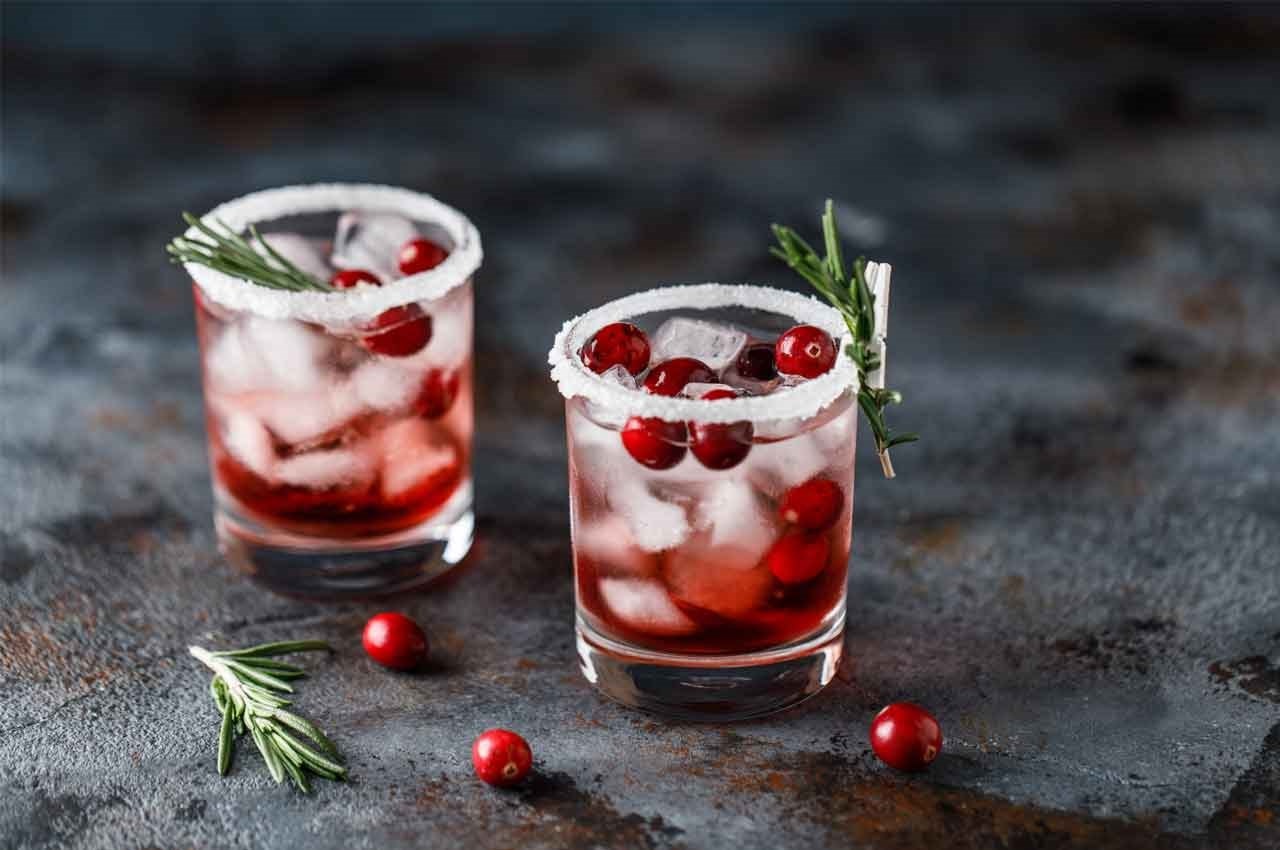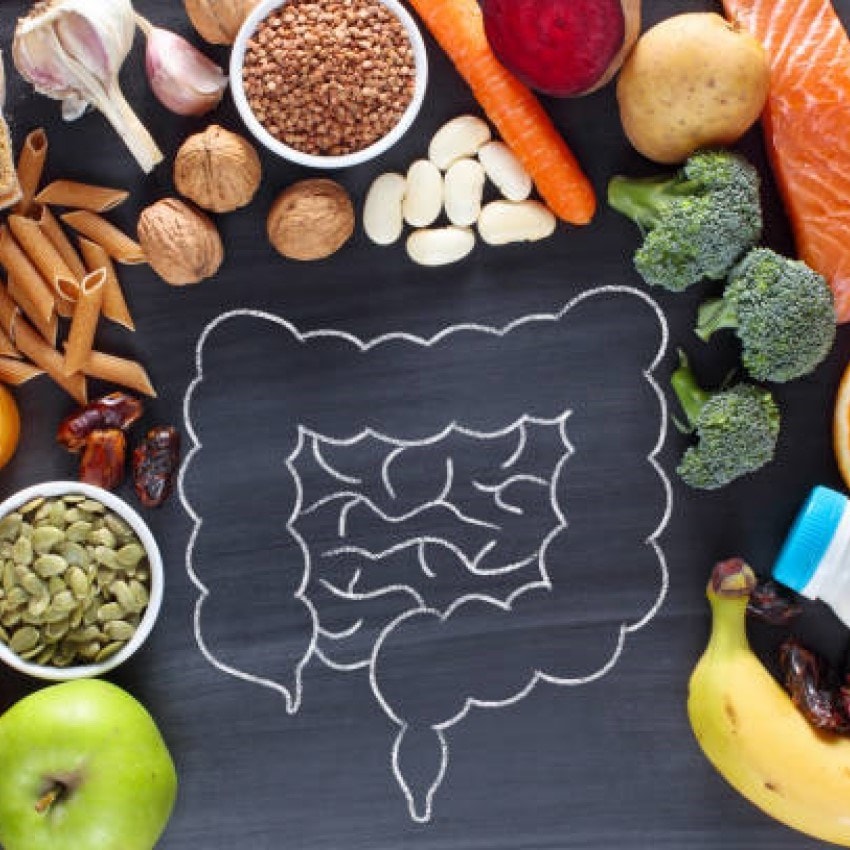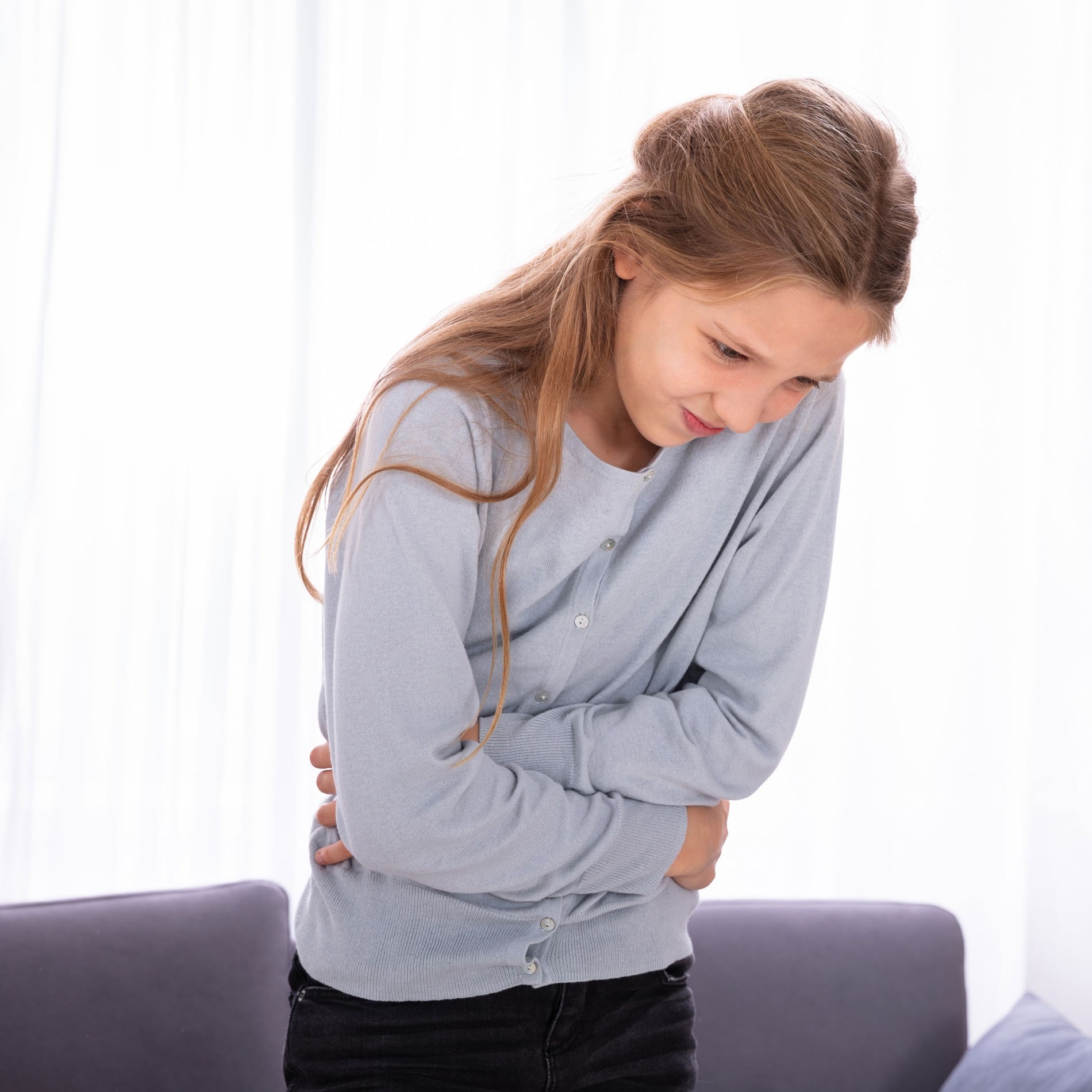Top Tips to Reduce Christmas Bloating
It’s the most wonderful time of the year! After another busy year we are ready to celebrate in style with our friends and family. We want to feel our absolute best whilst indulging in the holiday festivities, so dealing with a bloated belly is the last thing on our Christmas lists. Heavy Christmas foods, alcohol, stress, and more time spent sitting down indoors can impact our tummies and contribute to sluggish, bloated bellies.
In this article, we explain more about the causes of Christmas bloating, and offer easy top tips on how to keep your gut healthy over the holidays. Soon, your bloated belly will be the Ghost of Christmas Past!
You can learn more about gut health by reading: Gut health – all you need to know.
- 7 tips to get rid of Christmas bloat
- What relieves bloating fast?
- What could be causing my bloated belly?
- Feeling bloated after Christmas

7 tips to get rid of Christmas bloat
1. Drink plenty of water
It can be easy to forget about having a simple glass of water during the holidays when there are so many other tasty drinks on offer. Aim to have at least 8 glasses of water per day. You need plenty of water for proper digestion, regular bowel movements and healthy skin, each of which play an important role in feeling well day-to-day over Christmas. Avoid fizzy drinks which are essentially gas blended with water, as they can ‘puff out’ your belly. Stick to plain water, perhaps with a few fresh mint leaves or slice of lemon added for taste and extra gut soothing.
2. Consider a probiotic supplement
A high-quality probiotic supplement with specific strains researched for their effects on bloating can help keep our digestion happy over Christmas. Digestive enzymes in probiotics can help us to break down our food more effectively. Probiotic strains such as Bifidobacterium bifidum Rosell-71 contain an enzyme that breaks down starch, and Lactococcus lactis Rosell-1058, Lactobacillus acidophilus Rosell-52 and Lactobacillus casei Rosell-215 contain enzymes which break down lactose, the sugar in milk and dairy products.
Lactobacillus acidophilus NCFM®, a very well-researched strain, has been shown in many studies to help relieve IBS symptoms. In one study the participants saw a 73% improvement in bloating2
Prebiotics, the natural fibres that feed our friendly gut bacteria, can support the growth of our own natural gut bacteria and the probiotic bacteria from our live culture supplement. The combination of both prebiotics and probiotics in one supplement is a great option to get the best of both worlds. Learn more about probiotics and prebiotics by reading The benefits of probiotics and What are prebiotics?
3. Movement
Christmas is a lovely time to relax and put your feet up. However, your body will thank you for some gentle daily movement such as a twenty-minute walk or following a simple weights session while watching TV in your living room. Exercise can help our digestion and keep our bowels regular, which will help keep excessive gas production and bloating to a minimum.
If you don’t feel like an intense workout then why not try yoga? Certain yoga poses, like the cat and cow pose, can be helpful in improving bowel regularity because they reduce stress and increase blood flow to the digestive tract.
In fact, any kind of movement aids digestion and prevents you from feeling sluggish. Having a good old dance to some festive classics could be just the thing to reduce stress and reduce your Christmas belly bloat.
4. Be mindful of alcohol intake
Lots of people enjoy a few tipples over Christmas. To enjoy your alcohol beverages whilst limiting the undesirable side effects, keep in mind the following:
- Keep your water intake up - for every alcoholic beverage you have, alternate with a glass of water.
- One drink per hour - it takes the body approximately one hour to break down each unit of alcohol1, so try to have one drink per hour to allow your liver time to metabolise the alcohol without becoming overwhelmed.
- Don’t drink on an empty stomach - have your drink with food rather than alone, even if just with a handful of nuts, as this will help protect your stomach lining.
5. Sleep
Heavy, carbohydrate-dense foods, alcohol, stress and lack of exercise during the Christmas can make it harder to get a good night's sleep. Getting good quality rest can keep our gut healthy and less likely to have a bloated Christmas belly. If we are well rested, we are more likely to go for that walk and less likely to choose ‘empty-calorie’ foods to fuel us. Sleep also directly influences the health of our gut bacteria4, keeping our gut microbiome in balance. Keep these tips in mind when settling down for the night:
- Avoid caffeinated and alcoholic drinks in the evenings – both caffeine and alcohol negatively impact the quality of our sleep, either making it harder for us to fall asleep or keeping us from getting adequate deep sleep, leading us to wake up unrefreshed.
- Wear ear plugs and an eye cover – blocking out all light and noise can have a big impact on our quality of sleep. Once you start, you’ll wonder how you ever slept without pitch darkness before!
- Get outside during the day – even if the weather is horrible, going for a walk and getting some fresh air can get our heart pumping and tire us out, making it easier to fall and stay asleep later on. A walk in the daylight will also keep your mood up and your gut happy!
6. Morning warm lemon water
Having a glass of warm water first thing in the morning with a squeeze of lemon juice is a traditional Ayurvedic practice. It can really help you get your day started on the right foot. The acidity of the lemon and the warm water gets our gut moving and encourages a bowel movement first thing in the morning, keeping us regular and reducing the likelihood of bloating. Save your morning coffee for a little later in the day as caffeine can overexcite the digestive tract, stimulating spasms in the bowel that can cause temporary bloating in some people5.
7. Enjoy smaller portions more frequently
We all love a hearty Christmas dinner, but sometimes we may eat too much and feel uncomfortably full after our meal. Consider taking your time with your food and paying attention when you notice that you are starting to feel full. Give yourself a little while to digest and come back to the rest of your meal when you are ready to eat and enjoy it again. This can help to keep our digestive system from being overwhelmed and allow us to digest our food as thoroughly and efficiently as possible.
Remember to chew your food thoroughly too – Ayurveda practice advocates a minimum of 30 chews per bite of food. Digestive enzymes in saliva are an important part of the digestive process, so if food isn’t chewed enough before swallowing then belly ache can occur.

What relieves bloating fast?
We can avoid Christmas belly bloat and sluggish bowels by promoting regular bowel movements and minimising excessive gas production by our gut bacteria. As we've already explained, this can be achieved by keeping hydrated, nourishing our gut microbiome, managing stress, keeping active and prioritising good quality rest. However, this approach requires daily consideration and won’t work instantaneously.
A common question we are asked is what to do when you overeat and feel bloated in the immediate aftermath, to get your tummy back to normal. Although it usually takes a few hours for your digestive system to break down a heavy meal, there are a few solutions to enable this process to work as smoothly as possible.
- Go for a gentle walk – when we are uncomfortably full after a heavy meal, we are usually drawn to lying down on the couch or having a nap. We can encourage our digestive system to start moving by going for a twenty-minute walk.
- Try herbal tea – peppermint tea is a nice option after a heavy meal as it can help to calm the gut and allow gas to be expelled from the body. Peppermint oil has been shown in studies to provide relief from bloating and abdominal pain1, therefore it is possible that peppermint tea could provide similar benefits.
What could be causing my bloated belly?
This time of year, when the weather is cold and wet and the days are short and dark, we are drawn toward a more restful, comforting lifestyle. While the change of pace may soothe your soul it can also prompt a less tranquil digestion.
- Spending more time being sedentary at home and restricting our movements can make our digestion more sluggish than normal. Sitting down causes your abdomen to compress, which slows down gut function. This can lead to bloating and less efficient bowels.
- The pressure we feel at this time of year trying to accommodate family and friends and make Christmas extra special can take a toll on our gut health. Altogether, these factors can lead to feeling bloated over Christmas. You can read more about stress & bloating in our article: Stress & Bloating.
Our diet plays a particularly important role in bloating:
- The typical hearty, heavy foods we indulge in around Christmas contribute to bloated bellies. Some of the best loved Christmas foods are high in fat, refined carbohydrates, and sugar, and many people have difficulty breaking down such heavy foods. Our gut bacteria can ferment this semi-digested food as it passes through our gut, producing excessive amounts of gas which can lead to bloating.
- High-fat foods can also slow down our gut motility, giving the bacteria more opportunity to ferment and produce gas6. Foods high in sugar allow unfavourable bacteria and yeasts to thrive in the gut which can exacerbate bloating.
- Seasonal vegetables such as Brussels sprouts have developed a reputation for being gassy foods due to their high sulphur content.
- Bear in mind that alcohol, another Christmas favourite, can be dehydrating and can negatively affect our digestion and gut bacteria7, contributing to acid reflux, upset stomachs, and altered bowel patterns.
Feeling bloated after Christmas
Some people can become concerned if they continue to feel bloated after Christmas. If your bloating continues longer than normal or is accompanied with other issues like change in bowel pattern or abdominal pain, consider contacting your doctor. Prolonged bloating could be a symptom of an underlying issue, like Irritable Bowel Syndrome (IBS) or a food intolerance. To learn more about IBS, you may like to read Which probiotics are for IBS?
Finally, and most importantly, have fun and enjoy the festivities! You can still have a great time even when keeping these simple tips in mind. Enjoying the holidays with those we love, sharing the preparation of food and eating together, is an important aspect of your overall health and wellbeing during Christmas.
If you liked this article, you may also enjoy:
Probiotics for bloating
Natural remedies for bloating
Probiotics for winter immunity
References
- Alammar N et al., (2019) The impact of peppermint oil on the irritable bowel syndrome: a meta-analysis of the pooled clinical data. BMC Complement Altern Med, 19:21.
- Faber, S.M., (2000). ‘Treatment of abnormal gut flora improves symptoms in patients with irritable bowel syndrome’. American Journal of Gastroenterology, 95(9):2533.
- How Long Does Alcohol Stay in Your System? - Alcohol Rehab Guide. https://www.alcoholrehabguide.org/alcohol/how-long-alcohol-stay-system/. Accessed November 23, 2020.
- Smith RP, Easson C, Lyle SM, et al. Gut microbiome diversity is associated with sleep physiology in humans. PLoS One. 2019;14(10):1-17. doi:10.1371/journal.pone.0222394
- Papakonstantinou E et al., (2016) Acute effects of coffee consumption on self-reported gastrointestinal symptoms, blood pressure and stress indices in healthy individuals. Nutrition Journal, 15:26.
- Rohr M. W et al., (2020) Negative Effects of a High-Fat Diet on Intestinal Permeability: A Review. Advances in nutrition (Bethesda, Md.), 11(1), 77–91. https://doi.org/10.1093/advances/nmz061
- Koutromanos, I et al., (2024) Gut microbiome in alcohol use disorder: Implications for health outcomes and therapeutic strategies-a literature review. World journal of methodology, 14(1), 88519. https://doi.org/10.5662/wjm.v14.i1.88519
Popular Articles
View all Gut Health articles-
Gut Health22 Nov 2023
-
Gut Health20 Jun 2025
-
Gut Health15 Nov 2023


